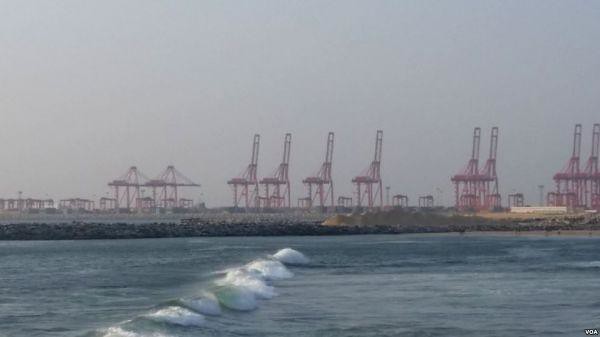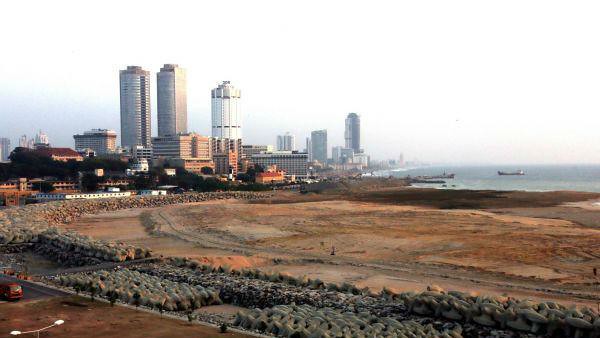
Recovering capital Colombo port project to be built.

Chinese port of Colombo City construction site.
China's largest investment project in Sri Lanka through changes.
Reference news Web on August 6, US media quoted Sri Lanka's Daily Mirror newspaper reported that the Sri Lanka sainalatenei August 2, a Government spokesman told the media that, due to India's pressure, Sri Lanka Government Colombo, port city on China's investment projects with Chinese investment revised development agreement. Under the new agreement, Sri Lanka withdrew 20 hectares of land previously granted to the Chinese permanent use, substituting it with a 99-year lease. Jiangsu Institute of National Taiwan Normal University
According to voice of America radio, August 5, this is the Sri Lankan Government publicly acknowledged for the first time, the project was halted a year by new President Maithripala Sirisena was due to India's pressure. Sainalatenei said: "Although Sri Lanka also has some objections to the project, but India warned the Government of Sri Lanka, once the project is completed, the sovereignty of Sri Lanka will be put a big question mark. "
Reported that the Colombo port-city project was signed by the leaders in September 2014 in China during his visit to Sri Lanka, is Sri Lanka's largest foreign direct investment projects, amounting to $ 1.4 billion. Project developed by the China communications construction group, projects include reclaimed land near the port in Colombo, the construction of a collection of golf courses, hotels, shopping malls, water sports area, apartments and Marina, the port city.
However, in January 2015, have strongly supported the project by President Mahinda Rajapakse to run for re-election before losing, the opposition alleged over-reliance on China, and left out the other regional power India. Shortly after the appointment of the new President, Maithripala Sirisena, a halt to the project, was given on the grounds that environmental protection and accounts for unclear reasons, but observers generally agreed that this is Maithripala Sirisena to India shows good posture.
Subsequently, China communications construction company evaluated was informed that because projects use caused daily losses of up to $ 380,000, and about 140 million dollars in compensation request to the Government of Sri Lanka. Sri Lanka exports weak and stagnant foreign investment, debt left over from the former Government, earlier this year, Sri Lanka had to announce, restart the port of Colombo City project, and hoped that the Chinese capital increased the intensity of investment in infrastructure in Sri Lanka.
Reported that after several months of discussion, consensus was finally reached on the restructuring programme after both sides. Disclose contract details of Colombo, according to the Communique, China communications construction company gave up $ 140 million in claims payments. In return, China will get 2 hectares of additional land for construction, covers an area of 110 hectares. One of the 20 hectares of land for permanent use in the previous agreement for the Chinese side, to a 99-year lease in a new agreement.
This year, the continuing decline in economic conditions in Sri Lanka, the Government hopes the infusion of foreign capital for its own economic recovery plays a key role. In addition to reset the port in Colombo City project, Sri Lanka also wants Chinese companies to take over airports and ports in the southern hanbantuota. Sri Lanka hopes that Chinese companies here to build a free economic zone, in order to balance the pro-Indian persons in the country, Sri Lanka while India threw an olive branch, hope India near Jaffna in northern Sri Lanka, similar to the establishment of a special economic zone.
No comments:
Post a Comment